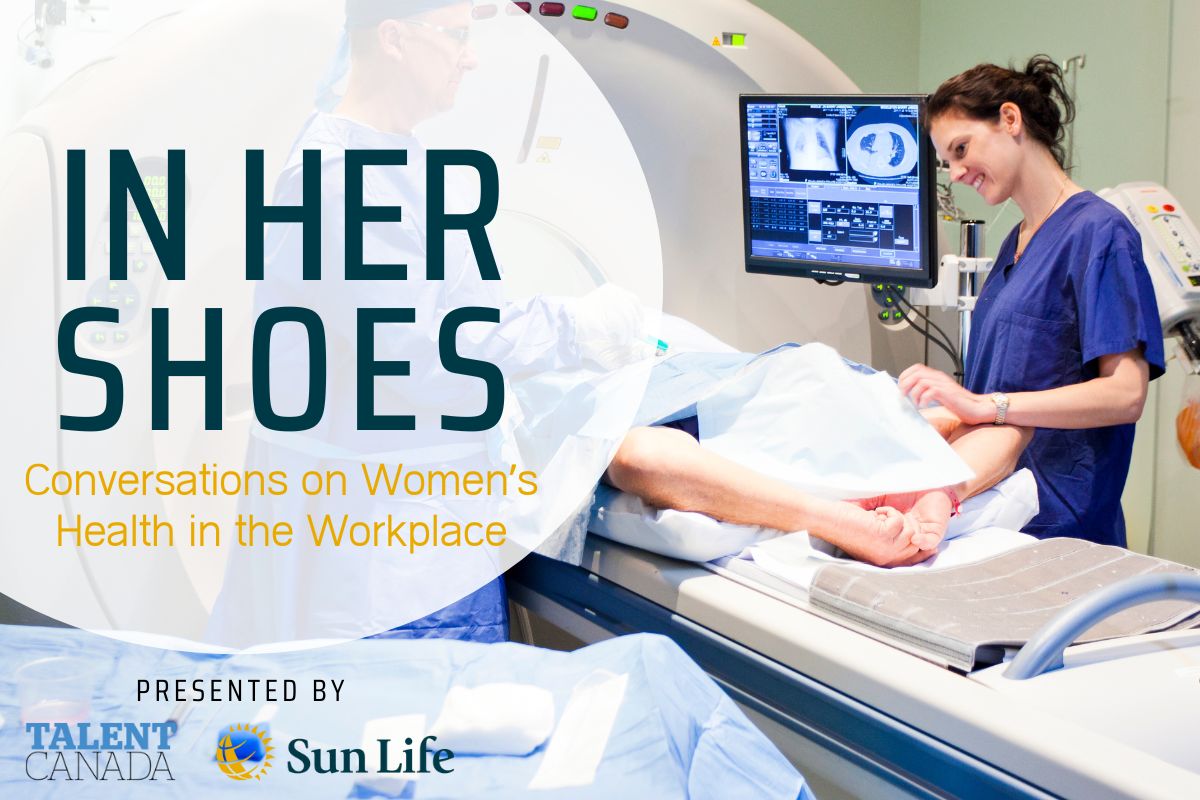

Features
Benefits & Pensions
Employee Wellness
Barriers, stigma and lack of support: Panel explores issues facing women in accessing health care
September 18, 2023
By
Todd Humber

Editor’s note: This is the third in a multi-part series tackling women’s health issues in the workplace and what employers, HR and leaders can do to make a difference. It’s based on a special roundtable conversation held by Talent Canada, in partnership with Sun Life, that took a deep dive into the issue. View the special section.
A recent panel discussion, held by Talent Canada in partnership with Sun Life, illuminated the systemic barriers and stigmas that make it difficult for women to access health care and gain support in the workplace.
Krista Hogan, director, product solutions and group benefits at Sun Life, rhymed off a long list of the issues women face in accessing care.
“That includes stigma, lack of medical representation in research, and then bias when it comes to diagnosis and treatment,” she said.
She elaborated on the various ways stigma impacts women, stating that the discomfort surrounding topics such as “contraception, menstruation, menopause” reduces funding for research and keeps women from seeking help.
“People are, in general, just uncomfortable talking about these issues,” said Hogan. The end result is that women themselves can be too embarrassed to speak up.
Issues with clinical trials
Hogan also expressed her concern over the underrepresentation of women in clinical trials.
“The approach of exclusion has left women with underrepresented portions in clinical trials and medical research,” she said, and it has led to many pregnant people without access to medication when they need it the most.
Citing her own experience, she recounted how she was unable to take cold medication while pregnant due to a lack of research, resulting in prolonged suffering.
“I had sinusitis. When I was pregnant, my body was already really swollen and then I was told that I could not take cold medicine to alleviate any of the symptoms because of the unknown effect it would have on me,” said Hogan. “So six weeks in, when I still couldn’t chew food, I was really hoping that there’d be some medication and some relief.”
The lack of awareness among health professionals compounds the issue. Hogan noted that “doctors are two times more likely to diagnose women with a psychological cause for their pain rather than a physical one.”
‘Definite lack of knowledge’ in workplaces
Tiana Field-Ridley, senior program manager at the Mental Health Commission of Canada, spoke about the limitations women face in the workplace.
“There’s a definite lack of knowledge that’s happening within the workplace,” she explained. According to Field-Ridley, the ignorance extends to “women’s health issues, child care issues, hormonal changes,” and prevents workplaces from providing necessary support.
Field-Ridley also highlighted the problem of self-stigma.
“There’s already people who, you know, have been out of the workforce for different reasons. They’re already starting from behind,” she said. The fear of facing repercussions or delays in career growth often keeps women from sharing health-related struggles at work.
Watch the video
Surveying employees
Carmen Klein, vice-president of HR and change management at Cadillac Fairview, talked about the importance of employee surveys and resource accessibility.
“We’ve been trying to do better at disseminating what exists today in the organization from a benefits perspective and a support and resources perspective,” she said. Klein mentioned how their data can pinpoint specific pockets within the organization that might need more attention and support.
Menopausal supports
Janet Ko, president and co-founder of the Menopause Foundation of Canada, focused on the lack of support for menopausal women. She rhymed off the support available for women at other stages — including puberty, pregnancy and postpartum depression — to reintegrate into the workplace.
But when menopause arrives, the support, care and open dialogue seems to disappear, she said.
“We believe that a lot of that is rooted in ageism and devaluing women as they get older,” Ko said, noting there is far more education and support around puberty.
She lamented the inadequate education and financial compensation for healthcare providers in menopausal care, which she said “diminishes women’s quality of life, their health outcomes, and their ability to make contributions.”
Ko pointed to a landmark report from 2022 that was titled: “The Silence and the Stigma: Menopause in Canada.”
It revealed significant gaps in the healthcare system concerning menopause treatment and education. While women consider healthcare providers their most trusted source for menopause information, only one in four proactively discuss their symptoms.
“For the women who took the concrete step to raise their concerns or talk about their symptoms, 72% found the conversation to be unhelpful or only somewhat helpful,” said Ko.
Four in 10 women leave their healthcare practitioner’s office feeling that their symptoms are untreated or under-treated, she said.
The report notes that women often feel their experiences and symptoms are diminished and ignored, being told to “put up with and suffer through” symptoms that can last up to a decade or more, said Ko.
The report suggests that the path to change lies in closing this knowledge gap and empowering women to advocate for themselves. A significant generational shift is underway with Gen X and millennial women, who are more active online and expect richer dialogues about important health topics. This shift is not just likely to affect healthcare settings but also has implications for the workplace, as these women have different expectations from employers compared to previous generations, said Ko.
Print this page